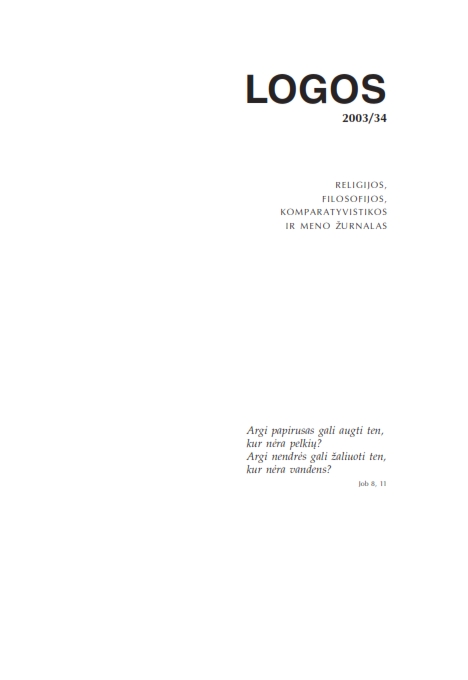Šv. Tomo Akviniečio teologinės kalbos reikšmingumas
The Meaningfulness of Theological Language in St Thomas Aquinas
Author(s): Marija OniščikSubject(s): Christian Theology and Religion, Epistemology, Philosophy of Middle Ages, Philosophy of Religion, Philosophy of Language, Hermeneutics
Published by: Visuomeninė organizacija »LOGOS«
Keywords: Theological language; concept of God; meaning; analogy; existential proposition;
Summary/Abstract: This article deals with the problem of meaning in the language of theology. The author’s considerations are based on methods of analytical philosophy, especially on the insights of Bertrand Russell. The Thomistic concept of God is shown as problematic and the possibility of speaking about God as being determined by human epistemological conditions. Speaking of Unknowable God presupposes the use of apophatic language. However, Aquinas’ theory of language lets him solve the dilemma which arises between affirmative and negative theology. The way of speaking about God proposed by Aquinas is analogy, which enables him to establish a kind of harmony between doctrinal and mystical aspects of theology. At the end of the article, the hypothetical character of existential propositions concerning God in Aquinas is investigated.
Journal: LOGOS - A Journal of Religion, Philosophy, Comparative Cultural Studies and Art
- Issue Year: 2003
- Issue No: 34
- Page Range: 97-109
- Page Count: 13
- Language: Lithuanian

